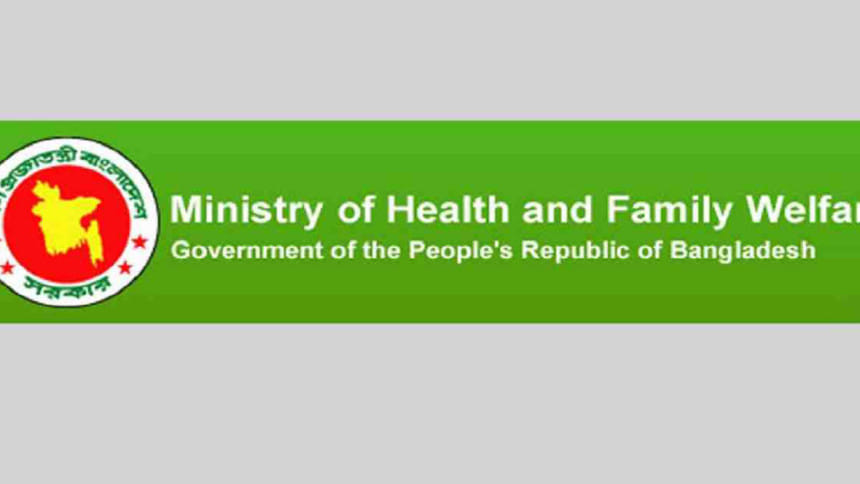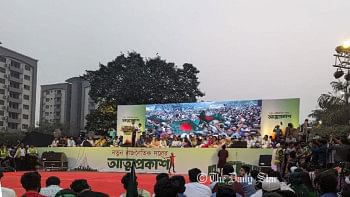Treat patients or be shut down

All private hospitals and clinics should have separate arrangements for treating suspected Covid-19 patients, and they cannot refuse any patient if they have the particular treatment facilities, said a health ministry circular.
"No patient can be refused treatment if there are treatment facilities. If the hospitals are to refer the patients to other hospitals, that has to be done only after ensuring arrangement of treatment in consultation with the Covid-19 hospital control room of the health directorate," said the circular signed by Iqbal Hossain, a deputy secretary at the Health Services Division.
The circular issued on Monday also said the kidney patients suffering for a long and taking treatment, including dialysis, should be provided with necessary treatment if they are not Covid-19 positive.
Failure to comply with the government order will result in taking legal actions, including revoking of licence, against the hospitals or clinics concerned if allegations are proved, the ministry said.
The new government order came on the heels of numerous allegations that hospitals and clinics are refusing to admit or treat patients with ailments, suspecting that they could be Covid-19 positive.
Even, a number of cases surfaced that the patients with other complications died for not getting treatment at hospitals.
They are asked to show certificates that they are Covid-19 negative, but that is not being possible for them because of lack of coronavirus testing facilities in the country.
Presently, nearly 7,000 tests can be conducted a day in Bangladesh, while South Korea tests up to 20,000 a day.
In its circular, the ministry mentioned that since the beginning of the coronavirus pandemic, non-Covid-19 patients, including the ones suffering from chronic kidney diseases, have been facing problems in receiving treatment at private hospitals and clinics.
The health ministry, on several occasions, requested the associations of Bangladesh private clinics and diagnostic owners and Bangladesh medical college owners to continue treating the non-Covid-19 patients.
The Directorate General of Health Services also issued orders and made it public through advertisements, but the problem still continues, it said.
Ministry officials said all the public hospitals were also asked to set up isolation units for suspected Covid-19 patients.
Public hospitals will have to collect samples and take steps to test the samples. If the patients are positive, they can refer them to the hospitals treating coronavirus patients after consulting the Covid-19 hospital control room of the health directorate, they said.
Presently, public medical colleges have Covid-19 test facilities and district Sadar hospitals have isolation units.
Asked about the order, Prof Rashid-E Mahbub, chairman of the National Health Rights Movement, said the intention of the circular is good to ensure that no patient is deprived of healthcare.
"However, there is a question of protection. All private hospitals don't have protection equipment to deal with suspected Covid-19 patients," he told The Daily Star.
There are two ways out, he said. First is that the government has to ensure quick tests of patients going to private hospitals, but currently it doesn't seem to conduct tests quickly as required, he said.
On the other hand, the government can allow private hospitals to buy PCR machines to conduct Covid-19 tests. In that case, these hospitals can test and treat the patients and that will largely reduce the burden on the public hospitals. Those who can avail will go to private hospitals, Mahbub said.
Health experts globally have been suggesting large-scale tests and isolation of Covid-19 patients -- the best way to prevent coronavirus spread.
However, the test rate in Bangladesh is significantly low.
Gonoshasthaya Kendra Founder and Trustee Dr Zafrullah said the home-grown rapid test kit could be a way out, but the government is not considering its validation as an emergency issue.
He said Gonoshasthaya Kendra scientists developed the rapid test kit that can test both antibody and antigen and has the accuracy level over 90 percent.
Bangabandhu Sheikh Mujib Medical University has formed a committee to independently conduct its performance trial on May 2, but the trial is yet to start.

 For all latest news, follow The Daily Star's Google News channel.
For all latest news, follow The Daily Star's Google News channel. 



Comments